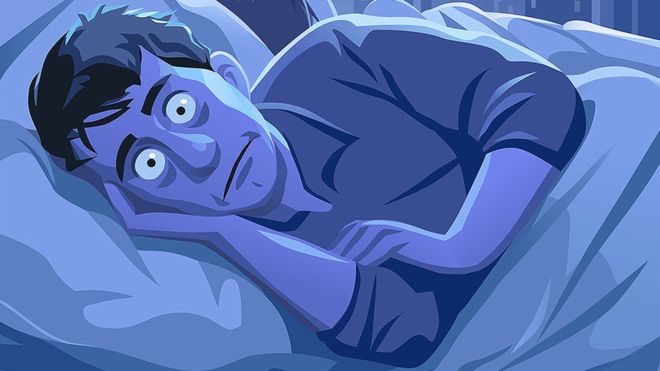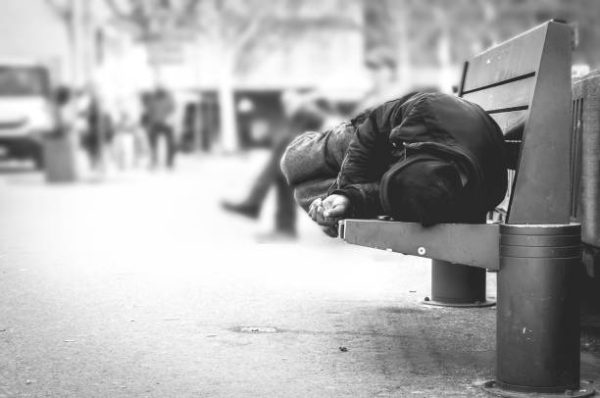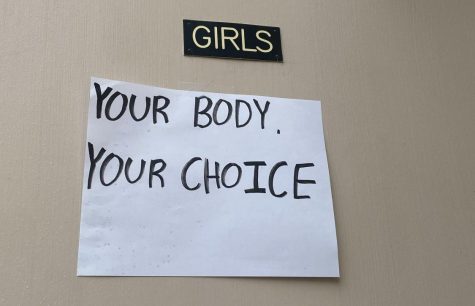5 Tips and Tricks to Get More Sleep
It is no secret that both adults and teens struggle with a lack of sleep. However, it is becoming increasingly clear that this generation of teens in the U.S. is growing up chronically sleep-deprived. According to the American Sleep Association, teenagers need about eight to ten hours of sleep per night to function optimally. Instead, teenagers are getting an average of seven to seven and a half hours of sleep a night. This apparent disparity between the recommended amount of sleep and the reality of how much sleep they are actually receiving points to a larger issue at hand: not only are students losing sleep, but we are going to suffer because of it. Both academically and emotionally.
The beginning of the school year always poses opportunities for those looking to change some aspect of their lives. And, given that this is the beginning of the year, most students have not completely ruined their sleeping schedules just yet. And if they have, then there may still be some hope salvaging them. The following are five proven tips to help you sleep better at night, making sure that sleep not only comes quicker, but it stays consistent throughout the entire night.
1.Increase Your Exposure to Bright Light Throughout The Day

Students are stuck inside classrooms for the better half of the day, meaning that they do not typically have a lot of natural light exposure. The body has a biological time-keeping clock known as your circadian rhythm (Overview of Circadian Rhythms). It is meant to keep you awake during the day and manage hormones in the body to ensure it can fall asleep at the appropriate time. So, natural sunlight helps keep the circadian rhythm properly regulated. Having natural light allows your body to have more energy during the day, and fall asleep easier at night. While it isn’t realistic to assume that a student will be outside for twelve hours a day, attempting to make room for at least two full hours of light exposure can help those who have average sleeping habits, as well as people who struggle with sleeping disorders.
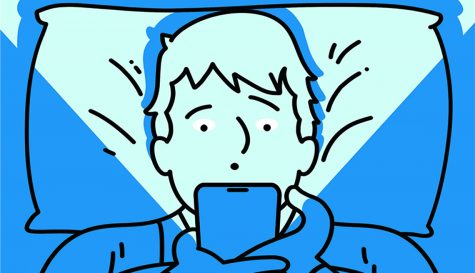
2.Reduce Blue Light Exposure At Night
Just the same as bright light exposure is crucial for better sleep during the day, bright
lights at night can be detrimental. This is due to the blue light tricking your circadian rhythm into believing it is actually still nighttime. Thus, it causes that biological clock to shift in ways you don’t want it to. It primarily causes the major sleep hormone in your system, melatonin, to drop. While you can always download an app that blocks blue light, the best option is to turn off electronics two hours before bedtime. As a student, it can be hard to tell when you will be turning in for the night. But by putting away your phone at a designated time and trying to sleep a couple of hours after that, you are setting yourself up for more success to catch those Z’s you may be lacking. Not to mention the fact that avoiding distractions helps you finish up any homework you have faster.
3. Setting the Stage

As previously mentioned, the key to getting a good night’s rest is by creating an environment to do so. Time to talk temperature. It can be hard to fall asleep when the room is either too warm or too chilly, so try to set the temperature to a comfortable level for you. While 70 degrees Fahrenheit is typically the ideal temperature, it can vary from person to person. And if you aren’t allowed to turn the AC on (because let’s be real, this could get expensive after a while), try and create that temperature yourself. Whether that be by dressing lighter, having more or fewer covers on your body at night, or cracking open any windows.
The next step is to set that mood. It’s never a good idea to bring stress into the bedroom, as it can create a tense environment that then leaves you associating bad thoughts and events with your room. But realistically speaking, teenagers tend to do a lot in their rooms. So the best solution is to create a night routine to unplug from all that. Start by putting that phone of yours across the room two hours from bedtime. Resist that urge to leave it next to your bed at night. Everyone knows you will probably end up getting distracted and scrolling through it and losing crucial sleep time as a result. After you are done with any homework, create a little night routine that works for you. Do you take a shower or bath before you sleep? That can be a good way to unwind. If not, try and set up at least ten minutes before you turn in to do something that puts your mind at ease. Color, read, simply close your eyes and relax\; whatever it is that calms you, do that.
A part of that night routine is having a stable bedtime. This can be hard when you take into account any other responsibilities you may have. But it’s important to organize your time in such a way that, when bedtime rolls around, you’re ready for it, not just getting started on that history assignment you got on Monday. This can be challenging, as many struggle with time management, but it’s simply a good habit to get into. Not only for high school but for real life. So take it seriously. Come home, give yourself ten minutes to settle in, and then get to work. Don’t get distracted on the phone, even if it’s tempting. That way, you can get to bed at the right time and get some hours that are a little closer to that goal range mentioned earlier. You’ll be thankful for it later.
4. Avoid Caffeine And Long Daytime Naps

For starters, the reason these two tips are being placed together is that they have the same consequence: messing up and confusing your system so that you can’t sleep on time. This is not to say that you should begrudge yourself that iced latte, or that you can’t have your afternoon nap after school. However, there are some rules that should be followed if you plan to continue. Caffeine has multiple benefits: enhanced energy, focus, and performance. That being said, if consumed too late in the say, it can interact with your sleep cycle and push you to sleep later and thus, bring you to consume more caffeine too late again the next day. The body takes six to eight hours for caffeine to leave your blood (PubMed Central). So if you need a daily fix, that’s perfectly fine. But it needs to be consumed far before it is time to sleep. That goes for things like chocolate or caffeinated sodas as well. Just stay away from it at night or during the late afternoon. Period.
As far as naps go, they have a similar effect. Naps can also improve focus and deliver a boost of energy, but having an excessively long nap could mess with your sleep schedule and even cause grogginess. In order to combat this, try and set a consistent time to take naps. Since there is an obvious conflict between school and other outside activities, taking a nap in the late afternoon can’t be avoided. But by shortening that nap from thirty to fifteen minutes, you can enjoy the benefits of that energy boost, but not have to suffer the consequence of a sleepless night.
5. Exercise and Drink Liquids- But Not Before Bed
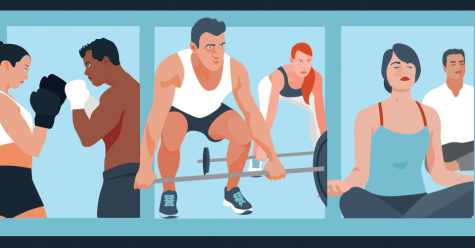
Exercise is one of the best science-backed ways to improve your sleep and health. It enhances different aspects of sleep and can help with insomnia (PubMed Central). What it does it wear out the body and improve tiredness at night (without becoming overtired and thus staying up at night). The issue with this is that it gives the body a boost of energy and alertness that can negatively interact with your sleep schedule if the exercise is too late at night. That being said, some people don’t find any difference, so it clearly varies from case to case. For people who play sports, this isn’t an issue. But for those who don’t exercise as often, even just taking a brisk thirty-minute walk can be beneficial.
As far as fluids go, it is always a good thing to remain hydrated. But it’s safe to say that most are all too familiar with the feeling of waking up in the dead of night to use the bathroom and then coming back to bed. Except, you find that not only can you not get comfortable, but your mind has roused from its half-asleep state and has decided to start cranking out unnecessary thoughts. To avoid this, try to stay away from liquids one to two hours before bed. It will help with access urination at night and allow you to consequently enjoy a more restful night’s sleep.
All these tips, if properly followed, will genuinely aid in your sleeping patterns and allow for not only more, but better quality of sleep. Of course, these tips are for those who aren’t suffering for those who might be suffering from sleep disorders such as insomnia (although they could help). If you are worried that your sleep troubles may be due to a more serious underlying factor, set up an appointment with your physician and inquire about it. If so, your doctor may prescribe medication to help treat it. However, for the average student struggling with getting to sleep at night, taking these suggestions and putting them to use may prove to actually help.


